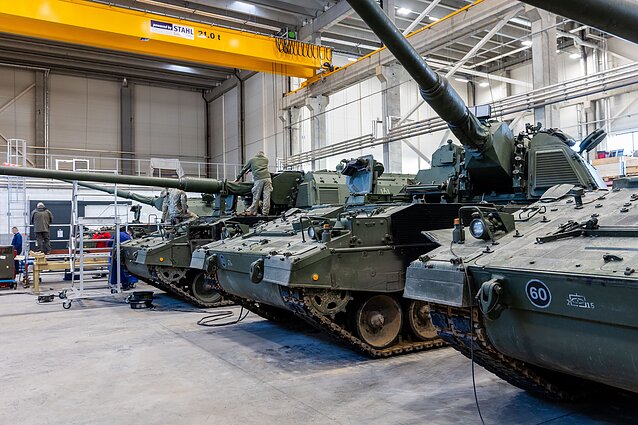EU Bureaucracy Delays Military Equipment Repairs for Ukraine
6 December, 2024 Panzerhaubitze 2000 (PzH 2000) self-propelled guns of the Ukrainian military. Summer 2022. Ukraine.
Photo: Radio Liberty The repair of Western weapons damaged or worn out during the fighting in Ukraine is sometimes delayed for months due to complicated logistics and bureaucracy. DW reported on this.
The joutnalists talked with Bohdan Nahai, commander of the Panzerhaubitze 2000 (PzH 2000) howitzer division, and member of the Armed Forces of Ukraine. He positively assessed the artillery system and said that its main malfunctions are caused by intensive operation on the battlefield. Among the most common problems, the military man mentioned software failure, overheating of control units, and barrel breakage.
However, even those malfunctions that Ukrainian repairmen can fix in the field, such as replacing barrels, take a long time to fix due to a lack of spare parts. "How long depends on the spare parts. From two months to six months," the artilleryman said.
 PzH 2000 self-propelled howitzer in Rukla, Lithuania, December 2022
PzH 2000 self-propelled howitzer in Rukla, Lithuania, December 2022
DW notes that European defense companies are now increasing their capabilities to produce, in particular, artillery barrels and spare parts. In addition, joint ventures are being set up in Ukraine to repair and maintain equipment and weapons transferred as part of military aid.
Bureaucracy
Bureaucracy is another big problem that hinders the restoration of equipment, according to DW.
"To send, for example, replacement barrels for howitzers or any other spare parts for which are waiting in Ukraine, Germany needs to obtain an export license for military products for each item. Instead of weeks, the process takes months," a representative of one of the defense companies complained in a conversation with the journalists. DW reminds that manufacturers are looking forward to the introduction of the so-called "military Schengen" recently initiated by German Chancellor Olaf Scholz.
Photo credits: Rheinmetall
It regards harmonizing the legislation of the EU countries so that a simplified permit regime within the community would operate in a special regime that would speed up the transportation of weapons and components between member states, eliminating the need for export licenses currently in use.
"This should be a priority for the new European Commissioner for Defense, Andrius Kubilius.
It is important that Ukraine becomes a part of this 'military Schengen'," emphasized a representative of a German arms company.